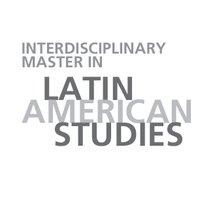Mandatory disciplines
General mandatory disciplines:
1) Interdisciplinary Practice and Procedures
Syllabus: Concepts of science and epistemology. Dialogues between different methodological paradigms and instruments. As far as the theoretical and practical domain is concerned, the course is intended to overcome the models of reality fractioning in order to rebuild the arts of knowledge in an interdisciplinary way. We propose interaction through concrete experiences of shared teaching, deriving from the complexity of the processes of constructing knowledge in the Latin American context.
2) Theories from and about Latin America
Syllabus: The course examines theoretical categories and paradigms that are based on Latin American social and cultural approaches in academic environments, as well as on ways and means of the indigenous thinking and of counter-hegemonic practices. It focuses on the varied critical processes, inter and transcultural and decolonial ones, through the analysis of the Latin American historical cultural particularities and their South-South and North-South relations.
Mandatory disciplines for each line of research:
Line – Cultural Transit: Languages in convergence
Syllabus: The discipline essentially summons the transmedia Narratology, the Intermedia models and the so called “Culture of Convergence”, in order to approach and review the types of interaction of the Latin American artistic, literary, cinematographic and audiovisual systems, as well as to diagnose substantial transitions and innovations that result from the alluded/deriving interchange in transnational contexts through time. In addition, it studies the appropriations of memories and historical and cultural processes through different languages.
Line – Borders, Diasporas and Mediations: Borders – Social and Cultural Knowledges
Syllabus: This discipline proposes the reflection upon the construction, acknowledgement and transit of local knowledges in bordering regions. It analyzes aspects that go from the linguistic-cultural rights to diversity and intercultural and diasporic dialogues, resulting from the contact among people. One of its intents is to capture the particularities and heterogeneities of the bordering spaces, through the observation of the social and cultural mediations that reframe the landscape/territory.
Line – Practice and Knowledges: Theories and Practice of Culture
Syllabus: It analyzes the repercussions of the different philosophical, aesthetic, sociological and anthropological traditions onto the Latin American intellectual life: education, art and culture, its languages, practices and knowledges. It presents the forms of the Latin American essay in the 19th, 20th and 21st centuries. It discusses the formation, institutionalization, transformations and dilemas in the cultural, academic and scientific fields in Latin America (19th to 21st centuries). It opens a dialogue from the non academic institutions in Latin America and their conflicts, disputes and alliances around culture and power.
